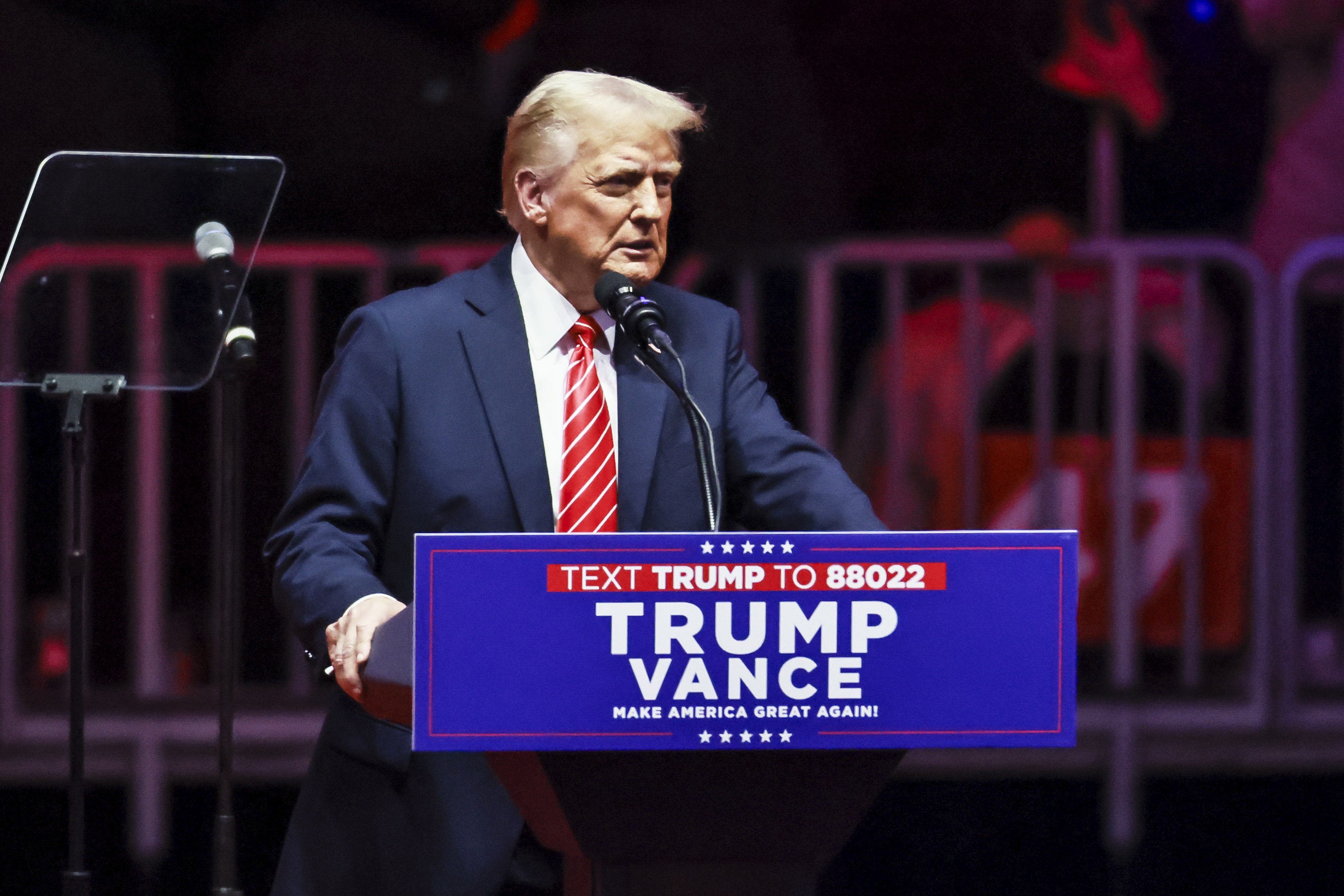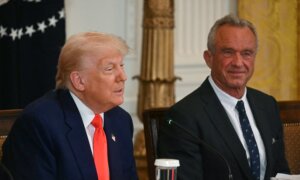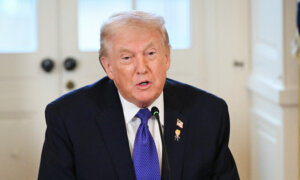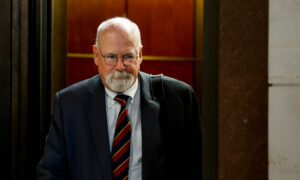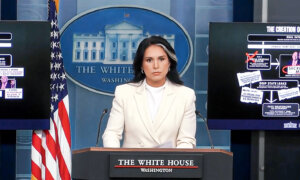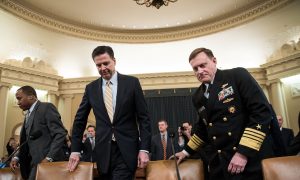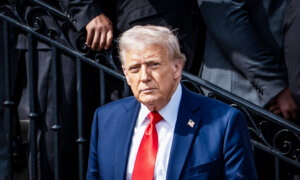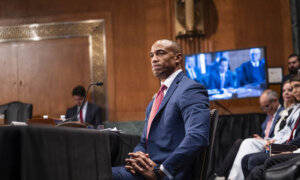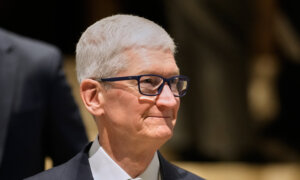President-elect Donald J. Trump returns to the White House as a seasoned executive intent on ending a decades-long approach to governance in ways that could reshape the presidency and the country well into the future.
Trump plans an about-face from the expansion of domestic programs and regulations and globalist foreign policy of the post-Cold War era. Instead, he’ll govern by an “America First” doctrine focused on border security, deregulation, energy production, and strategic engagement with other nations.
To achieve that, he proposes a further expansion of presidential power and a reduction of the size and authority of the federal bureaucracy.
Trump’s sweep of all six battleground states and 86-vote margin in the Electoral College provides support for significant change, and initial signs indicate that he has governing momentum.
Yet there will be obstacles. Republicans hold a slim majority in both houses of Congress, which complicates Trump’s legislative agenda. And the ratio of Trump’s favorable-to-unfavorable ratings is an almost even split in an average of recent polls.
Even so, Trump’s dramatic and improbable comeback sets the stage for reshaping the executive branch of the federal government.
And it began with a campaign marked by a series of unprecedented events.
Tumultuous Campaign
Shortly after announcing this third presidential campaign in November 2022, Trump was indicted on dozens of charges in four criminal cases. Trump has maintained that all charges were part of a politically motivated “witch hunt,” while his opponents have said they were proof that “no one is above the law.”
His May 30, 2024, conviction for falsifying business records in New York seemed only to solidify his standing among supporters as a Washington outsider on a mission to upend the political establishment.
Then in July, a bullet clipped Trump’s ear during a failed assassination attempt at a campaign rally in Pennsylvania. He rose from the floor, ear bloodied, fist raised, and shouted, “Fight! Fight! Fight!” resulting in arguably one of the most iconic moments in modern American history.
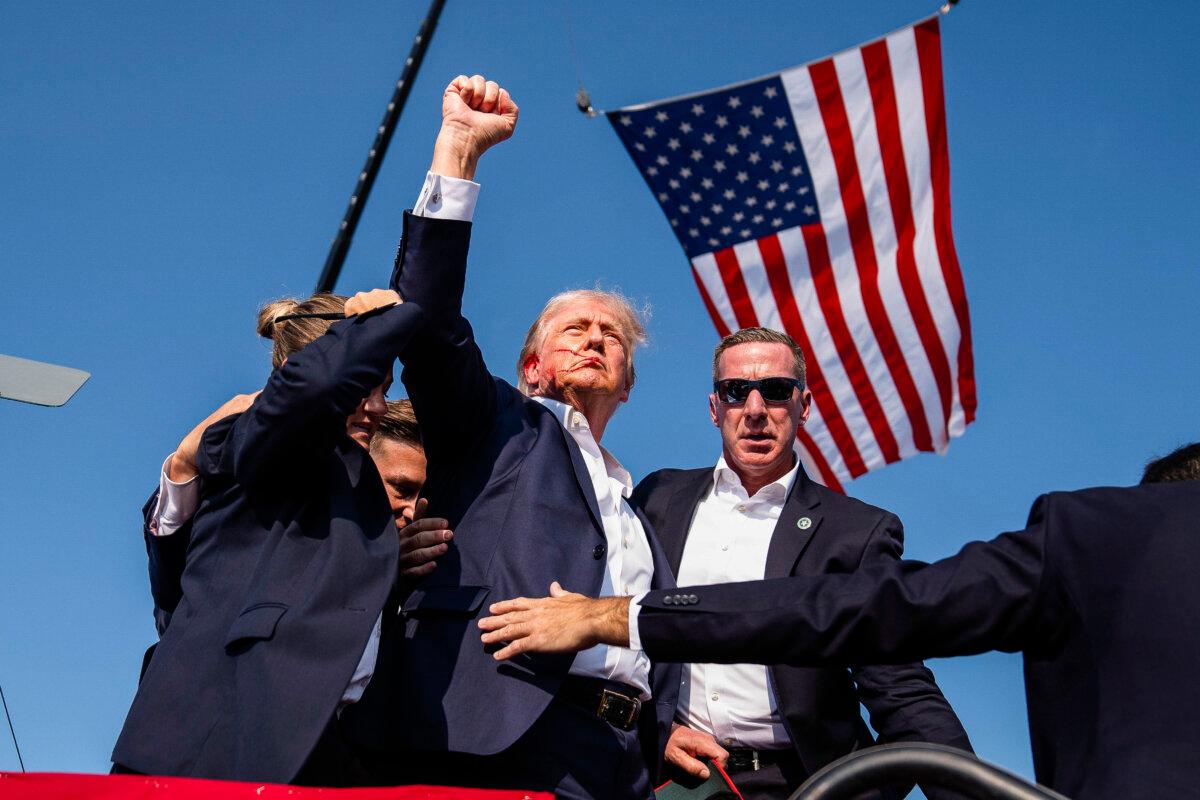
Republican presidential candidate former President Donald Trump raises his fist shortly after the assassination attempt at a campaign rally, in Butler, Pa., on July 13, 2024. The shooter was killed by the Secret Service. One attendee died in the shooting. (Evan Vucci/AP Photo)
Half an hour later, billionaire entrepreneur Elon Musk took to X, the social media platform he owns, to give Trump a full-throated endorsement. Former Democrat-turned-independent presidential candidate Robert F. Kennedy Jr. would follow in August, along with Tulsi Gabbard, a former Democratic member of Congress and 2020 presidential candidate.
President Joe Biden ended his presidential campaign on July 21 under pressure from Democratic Party leaders. Vice President Kamala Harris, with Biden’s endorsement, entered the race 15 days later, creating what amounted to a second presidential campaign of just 92 days.
Assembling an unlikely coalition of billionaires and working-class Americans, Trump won the Nov. 5 election to claim a rare nonconsecutive presidential term.
Many expected the election of President Joe Biden in 2020 to end Trump’s political career. The following four years, marked by increased federal spending, high inflation, and record-setting illegal immigration, drove voters back to Trump’s vision to restore America’s fortunes.
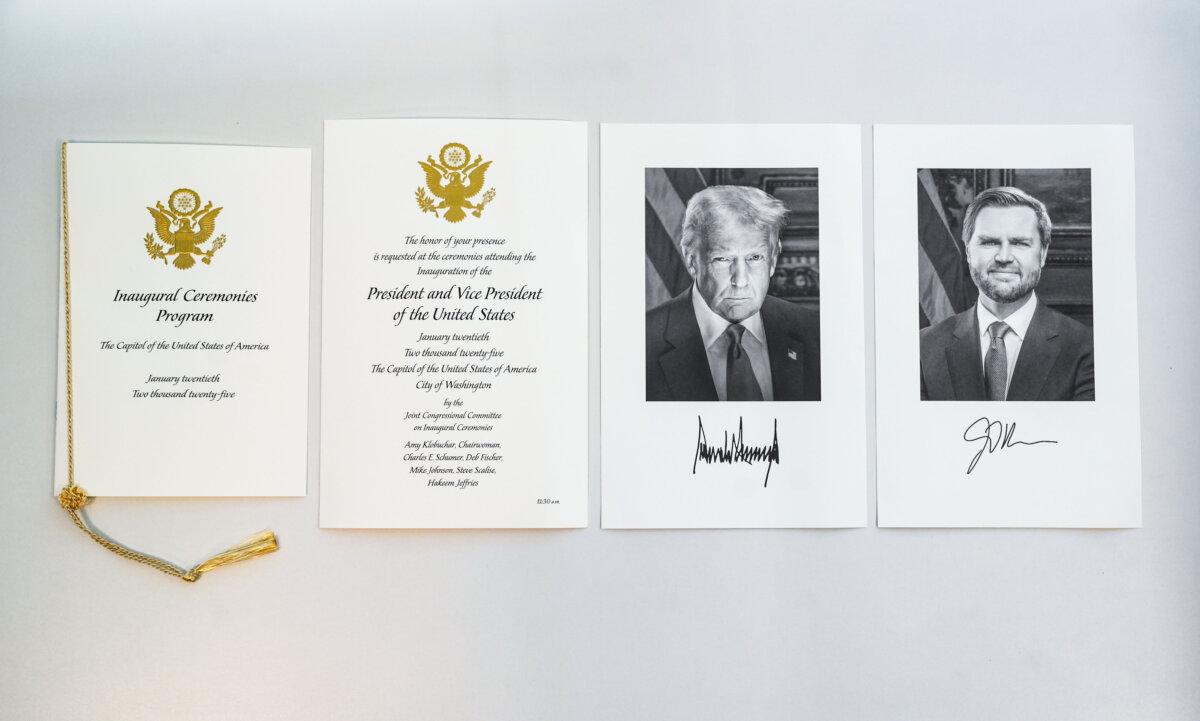
An Invitation to Donald Trump’s Inauguration as 47th President of the United States. (Samira Bouaou/The Epoch Times)
“It was clear from the election results that a lot of the things that Trump was saying on the campaign trail had resonance, far beyond [Trump’s] base,” Peter Campbell, associate professor of political science at Baylor University, told The Epoch Times.
Trump’s second term will likely differ from the first, not in direction but in effectiveness, experts say.
“Trump has a very good sense now that he didn’t have in his first term of what power is and how it’s used,” Michael A. Genovese, a professor of political science and international relations and president of Global Policy Institute at Loyola Marymount University, told The Epoch Times.
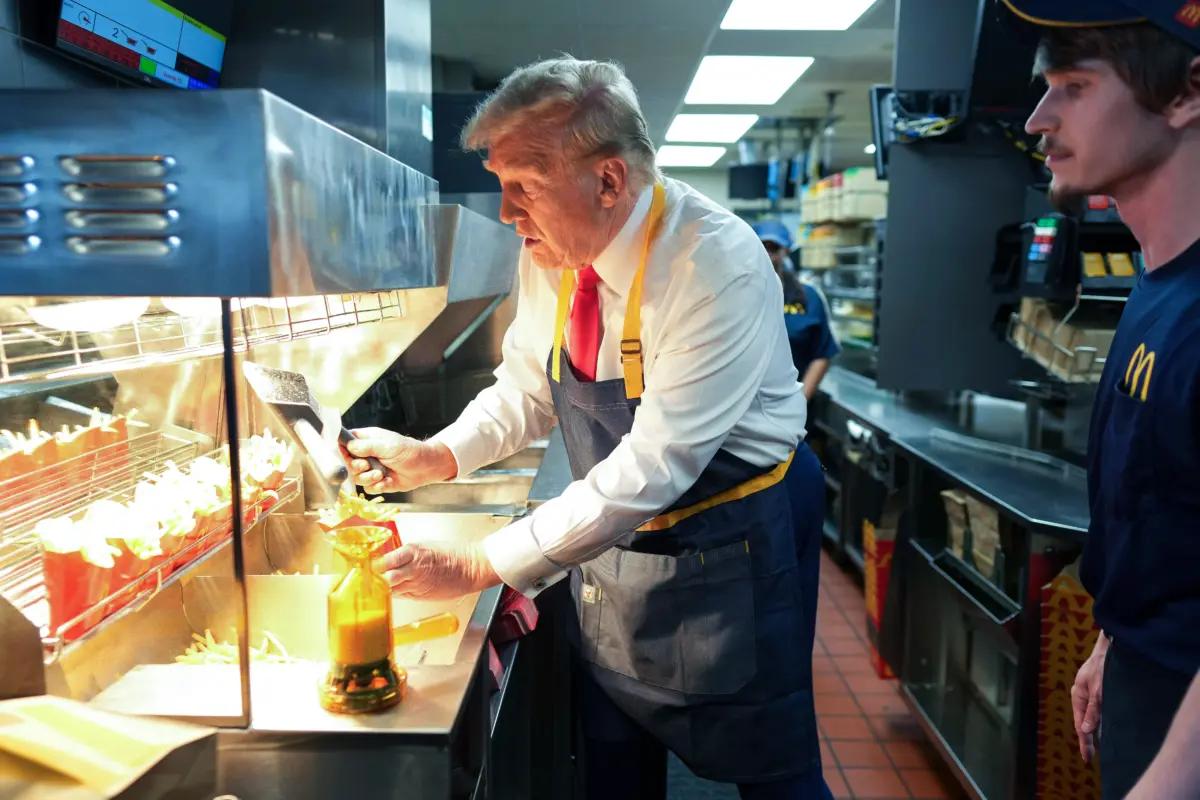
Former President and Republican presidential nominee Donald Trump works behind the counter making french fries during a visit to a McDonald's restaurant in Feasterville-Trevose, Pa., on Oct. 20, 2024. (Doug Mills-Pool/Getty Images)
Independent Executive
Many presidents have chafed under the limits of their power, and Trump has been especially frustrated by institutional roadblocks.
“Biden was more of what I would call a traditional president,” Joe Wert, a professor of political science at Indiana University Southeast, told The Epoch Times. “He was less likely to break the norms [of the presidency] than Trump has been.”
Biden understood the workings of government and made use of tools like federal regulation and budget negotiations to get things done. Though he has been willing to act unilaterally at times, as when attempting to cancel some $400 billion in student loans, a move that was blocked by the courts.
Trump has been even less patient with the cumbersome workings of government.

President Donald Trump meets with bipartisan Members of Congress to discuss school and community safety in the Cabinet Room of the White House in Washington on Feb. 28, 2018. (Samira Bouaou/The Epoch Times)
“Biden, I think, really likes being head of government, but I don’t think he’s a huge fan of being head of state,” Shannon B. O'Brien, associate professor of instruction at the University of Texas’s Department of Government, told The Epoch Times. “Trump, on the other hand, loves being head of state, but I don’t think he likes being head of government.”
Trump signed just one executive order on Inauguration Day 2017. This time Trump intends to issue more than 100 executive actions in the first 48 hours.
Lawsuits will follow. The first Trump administration was sued 400 times by the ACLU alone. Aggressive executive action will certainly be challenged in the courts.
For example, Trump has pledged to challenge the constitutionality of a 1974 law imposing limits on the presidential power of impoundment. If successful, he and future presidents would have sweeping authority to determine how and when federal money is spent.
Subordinate Bureaucracy
Trump is a deregulator who aims to reduce the authority of federal bureaucrats and provide greater freedom to individuals and businesses.
The Biden administration implemented new regulations at a rapid pace, according to the Regulatory Studies Center at George Washington University. In April 2024 the administration set a record by publishing 66 significant final rules in a single month.
Trump has vowed to cut 10 federal regulations for each new rule passed. The Department of Government Efficiency (DOGE), a nongovernmental advisory board created by Trump and headed by Musk and former presidential candidate Vivek Ramaswamy, aims to cut federal spending by $2 trillion, about a third of the federal budget.
DOGE, Trump said, will pave the way for his administration to “dismantle Government Bureaucracy, slash excess regulations, cut wasteful expenditures, and restructure Federal Agencies.”

Businessman Vivek Ramaswamy (L) and Elon Musk (R), co-chairs of the newly announced Department of Government Efficiency, arrive on Capitol Hill on Dec. 5, 2024. (Anna Moneymaker/Getty Images)
That will be a boon to business, according to Wert.
“Trump is going to get rid of as many regulations as he can and free up businesses to grow the economy as fast as and as big as they can,” Wert said. “I think that’s part of the reason you see a lot of the big business leaders coming on board with the Trump administration.”
Trump announced a 10-point plan in March 2023 “to dismantle the ‘deep state’ and reclaim our democracy from Washington corruption.”
The first step will be to reinstate his 2020 executive order asserting the president’s authority to “remove rogue bureaucrats,” Trump said. “Faceless bureaucrats will never again be able to target and persecute conservatives, Christians, or the left’s political enemies, which they’re doing now at a level that nobody can believe even possible.”
This move would expand the president’s power to fire federal employees who make government policy but are not political appointees.
The result would be a “revolutionary change, a complete remake of Washington and all politics as usual,” Jeffrey A. Tucker, founder of a nonprofit group that examines public policy, wrote of Trump’s first plan in 2022.
Trump 2.0 is here, and the world won’t have to wait long to see the scope and pace of change that will result.
Trump said, “I may even have a very tiny little desk put on the 20th stair” of the U.S. Capitol to begin signing executive orders the moment he becomes president.
That will happen at 12 p.m. on Jan. 20, 2025.
Janice Hisle contributed to this report.
